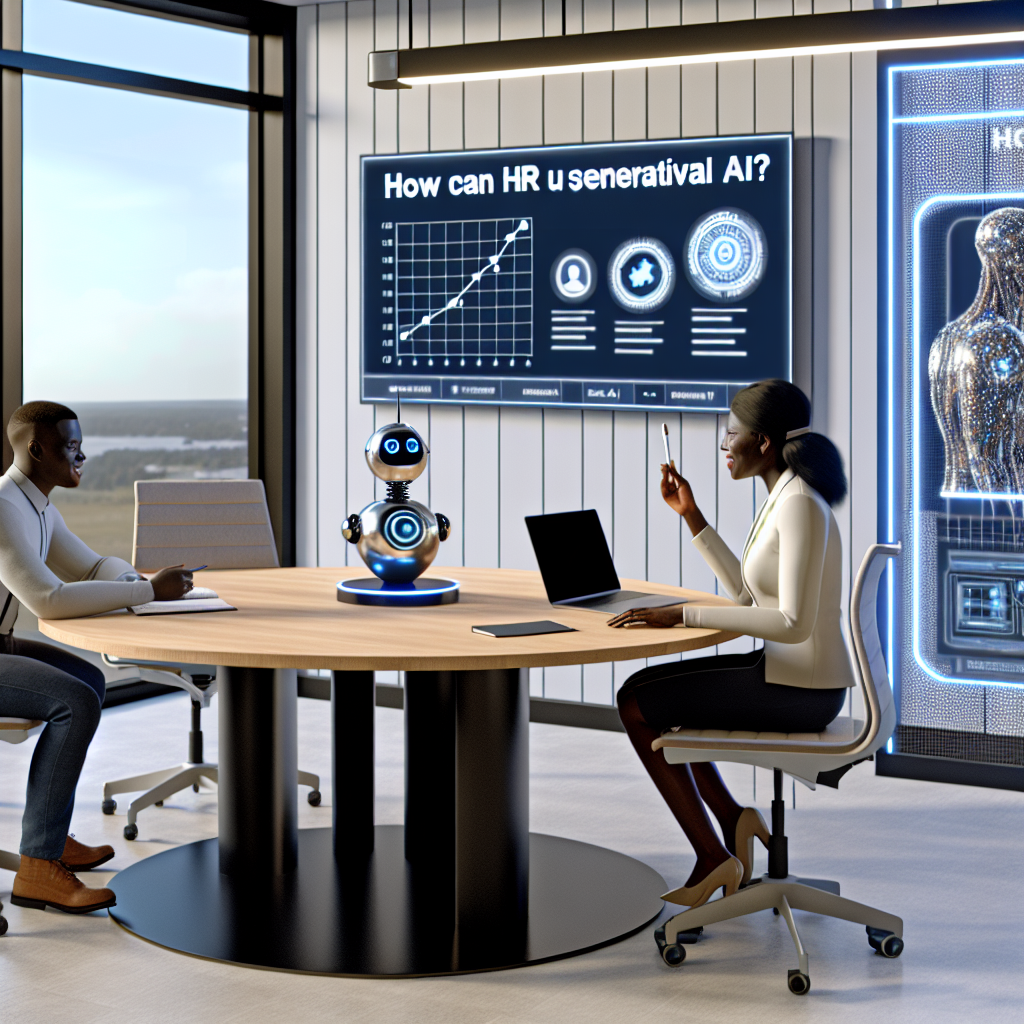In 2024, the role of Human Resources (HR) is evolving rapidly, largely due to the rise of generative AI technologies. As HR professionals continue to face the challenges of recruitment, employee engagement, and retention, generative AI presents innovative solutions that can transform traditional HR practices. This article explores the myriad ways HR can harness this technology to enhance operations, improve employee experiences, and drive organisational success.
Understanding Generative AI in HR
Generative AI refers to algorithms that can generate new outputs based on existing data. These systems can create texts, images, and even audio, making them invaluable across various HR functions. Here are some key applications:
- Recruitment Assistance: AI can streamline the hiring process by generating job descriptions and identifying potential candidates based on specific criteria.
- Employee Onboarding: Create personalised onboarding materials tailored to new hires’ roles.
- Training Development: Design custom training programmes that adapt to the needs of employees.
Enhancing Recruitment Processes
Recruitment is a time-consuming aspect for HR, but generative AI can significantly optimise this process. By utilising AI tools, HR teams can:
- Create Dynamic Job Descriptions: AI can analyse market trends and suggest keywords that attract top talent.
- Screen Resumes: These systems can rapidly assess applications, highlighting candidates who meet specific qualifications.
- Conduct Initial Interviews: AI chatbots can engage with candidates, asking pre-defined questions to gauge suitability.
Optimising Employee Engagement
Employee engagement is critical for retention and productivity. Generative AI can enhance engagement in several ways:
- Personalised Communication: AI tools can generate personalised messages for employees, keeping them informed about company updates and opportunities.
- Feedback Mechanisms: AI can analyse employee responses to surveys and provide insights on engagement levels.
- Interactive Learning: Create engaging training sessions that cater to various learning styles, utilising AI to adapt materials.
Facilitating Performance Management
Bringing clarity and consistency to performance management is essential. Integrating AI into this process can:
- Set Goals and Objectives: AI systems can help align individual goals with organisational aims, ensuring everyone is on the same page.
- Provide Real-Time Feedback: AI can generate performance reports that offer insights and suggestions for improvement.
- Identify Learning Opportunities: AI can pinpoint skill gaps and recommend training programmes to address them.
Streamlining Administrative Tasks
Administrative tasks can be overwhelming for HR teams, but generative AI can alleviate this burden. Here’s how:
- Automated Document Generation: HR can use AI to create contracts and policy documents automatically.
- Data Management: AI can manage employee records, ensuring they are up-to-date and easily accessible.
- Scheduling Assistance: AI tools can organise meetings, interviews, and training sessions by considering employee availability.
Overcoming Potential Challenges
While generative AI offers numerous advantages, HR professionals must remain aware of potential challenges, including:
- Data Privacy Concerns: Protecting employee data is paramount when integrating AI systems.
- Bias in Algorithms: Ensuring that AI tools are free from bias is crucial for fair recruitment and performance management.
- Continuous Learning: HR teams must stay informed about AI developments to effectively implement these technologies.
The Future of HR with Generative AI
As the workforce continues to adapt to new technologies, HR professionals must embrace generative AI to remain competitive. The future promises further innovations that can enhance HR functions. Industries are beginning to change, making it crucial for HR to keep pace. With the right approach, HR can:
- Attract Top Talent: With AI-enhanced recruitment strategies, organisations can secure the best candidates.
- Foster a Positive Work Environment: AI can help create a conducive atmosphere for growth and learning.
- Support Diverse Teams: Leveraging AI can facilitate inclusive hiring practices that benefit the company’s culture.
Implementing Generative AI in HR Strategy
Adopting generative AI within HR strategies requires careful planning. Here’s a step-by-step guide for HR professionals:
- Assess Current Processes: Identify which HR functions could benefit from AI integration.
- Research AI Tools: Explore various generative AI tools that align with organisational needs.
- Train Your Team: Ensure that HR staff are well-equipped to use these technologies effectively.
- Monitor Results: Measure the impact of AI on HR processes and employee satisfaction.
Conclusion
Generative AI holds immense potential for transforming HR practices. By adopting these technologies, HR professionals can enhance recruitment, boost employee engagement, optimise performance management, and streamline administrative tasks. As the field continues to evolve, staying abreast of AI developments will be crucial for HR success. Embracing generative AI is not merely advantageous, but a strategic necessity for forward-thinking organisations ready to thrive in the competitive landscape of 2024 and beyond.

Vadim Kouznetsov is a distinguished entrepreneur and the visionary founder and CEO of JobXDubai.com, the UAE’s rapidly expanding job board. Renowned for his expertise in bridging the gap between job seekers and employment opportunities, Vadim has become a leading authority in the recruitment and job market of Dubai.
